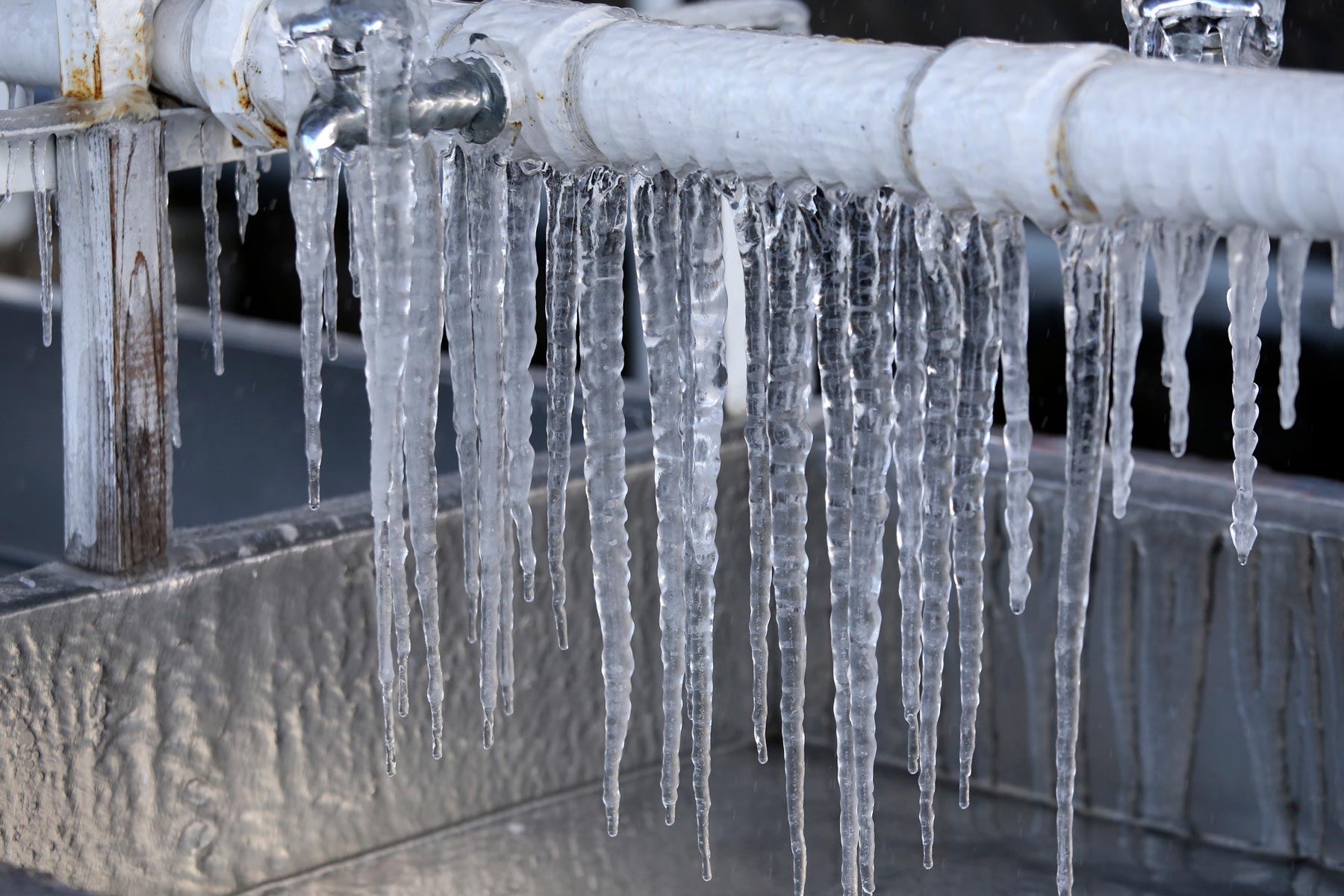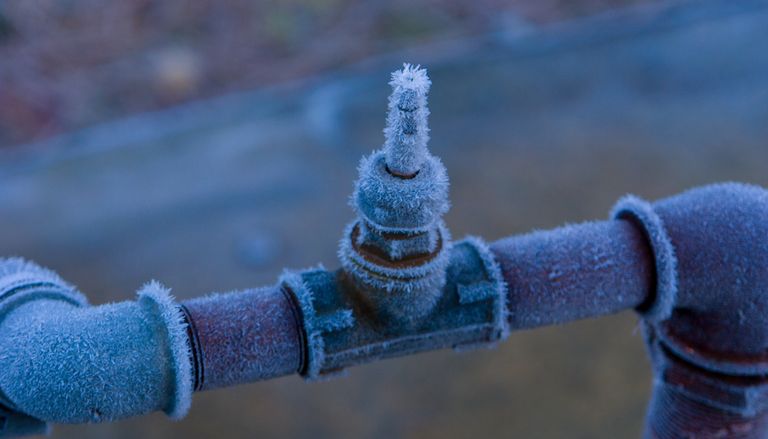Crucial Tips for Preventing Frozen Pipes in Winter Seasons
Crucial Tips for Preventing Frozen Pipes in Winter Seasons
Blog Article
We've stumbled on the article relating to How To Avoid Freezing Pipes listed below on the net and concluded it made sense to talk about it with you on this page.

Winter can wreak havoc on your plumbing, specifically by freezing pipes. Here's exactly how to prevent it from taking place and what to do if it does.
Intro
As temperatures drop, the risk of icy pipes rises, potentially causing expensive repair services and water damages. Understanding exactly how to avoid frozen pipes is critical for home owners in cold environments.
Avoidance Tips
Insulating vulnerable pipelines
Cover pipelines in insulation sleeves or use heat tape to secure them from freezing temperature levels. Concentrate on pipes in unheated or exterior locations of the home.
Home heating techniques
Maintain interior spaces properly warmed, specifically locations with pipes. Open cabinet doors to allow cozy air to distribute around pipelines under sinks.
Exactly how to determine frozen pipelines
Try to find reduced water flow from taps, uncommon odors or sounds from pipes, and noticeable frost on revealed pipelines.
Long-Term Solutions
Structural modifications
Consider rerouting pipes away from exterior walls or unheated areas. Include additional insulation to attics, cellars, and crawl spaces.
Upgrading insulation
Buy top quality insulation for pipelines, attic rooms, and walls. Proper insulation aids preserve consistent temperatures and lowers the risk of frozen pipelines.
Securing Outside Pipes
Yard hose pipes and outdoor taps
Separate and drain pipes yard hose pipes prior to winter. Install frost-proof spigots or cover exterior faucets with insulated caps.
Understanding Frozen Pipes
What causes pipes to ice up?
Pipelines ice up when revealed to temperatures below 32 ° F (0 ° C) for extended periods. As water inside the pipes ices up, it increases, putting pressure on the pipe walls and potentially causing them to burst.
Risks and damages
Frozen pipelines can cause water disruptions, residential property damage, and costly repairs. Burst pipelines can flooding homes and cause extensive architectural damage.
Indications of Frozen Pipes
Determining frozen pipelines early can stop them from breaking.
What to Do If Your Pipes Freeze
Immediate actions to take
If you think frozen pipes, maintain faucets open to eliminate pressure as the ice thaws. Use a hairdryer or towels taken in hot water to thaw pipes slowly.
Conclusion
Stopping frozen pipes needs aggressive procedures and quick feedbacks. By comprehending the causes, indications, and preventive measures, homeowners can protect their plumbing during winter.
Helpful Tips to Prevent Frozen Pipes this Winter
UNDERSTANDING THE BASICS: WHY PIPES FREEZE AND WHY IT’S A PROBLEM
Water freezing inside pipes is common during the winter months, but understanding why pipes freeze, and the potential problems it can cause is crucial in preventing such incidents. This section will delve into the basics of why pipes freeze and the associated problems that may arise.
THE SCIENCE BEHIND FROZEN PIPES
When water reaches freezing temperatures, it undergoes a physical transformation and solidifies into ice. This expansion of water as it freezes is the primary reason pipes can burst. As the water inside the pipe freezes, it expands, creating immense pressure on the walls. If the pressure becomes too great, the pipe can crack or rupture, leading to leaks and water damage.
FACTORS THAT CONTRIBUTE TO PIPE FREEZING
Low Temperatures: Extremely cold weather, especially below freezing, increases the risk of pipes freezing. Uninsulated or Poorly Insulated Pipes: Pipes located in unheated areas, such as basements, crawl spaces, or attics, are more prone to freezing. Insufficient insulation or lack of insulation altogether exacerbates the problem. Exterior Wall Exposure: Pipes running along exterior walls are susceptible to freezing as they encounter colder temperatures outside. Lack of Heating or Temperature Regulation: Inadequate heating or inconsistent temperature control in your home can contribute to frozen pipes. PROBLEMS CAUSED BY FROZEN PIPES
- Pipe Bursting: As mentioned earlier, the expansion of water as it freezes can cause pipes to burst, resulting in significant water damage.
- Water Damage: When pipes burst, it can lead to flooding and water damage to your property, including walls, ceilings, flooring, and personal belongings.
- Structural Damage: Prolonged exposure to water from burst pipes can compromise the structural integrity of your home, leading to costly repairs.
- Mold and Mildew Growth: Excess moisture from water damage can create a favorable environment for mold and mildew growth, posing health risks to occupants.
- Disrupted Water Supply: Frozen pipes can also result in a complete or partial loss of water supply until the issue is resolved.
WHY CERTAIN PIPES ARE MORE PRONE TO FREEZING
- Location: Pipes located in unheated or poorly insulated areas, such as basements, crawl spaces, attics, or exterior walls, are at higher risk of freezing.
- Exterior Pipes: Outdoor pipes, such as those used for irrigation or exposed plumbing, are particularly vulnerable to freezing as they are directly exposed to the elements.
- Supply Lines: Pipes that carry water from the main water supply into your home, including the main water line, are critical to protect as freezing in these lines can affect your entire plumbing system.
- Underground Pipes: Pipes buried underground, such as those connected to sprinkler systems or outdoor faucets, can be susceptible to freezing if not properly insulated.
https://busybusy.com/blog/helpful-tips-to-prevent-frozen-pipes-this-winter/

As a passionate reader about Preventing and dealing with frozen pipes, I assumed sharing that editorial was a great idea. Do you know someone else who is inquisitive about the niche? Do not hesitate to promote it. I cherish your readership.
Schedule Appointment Report this page